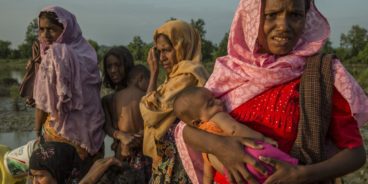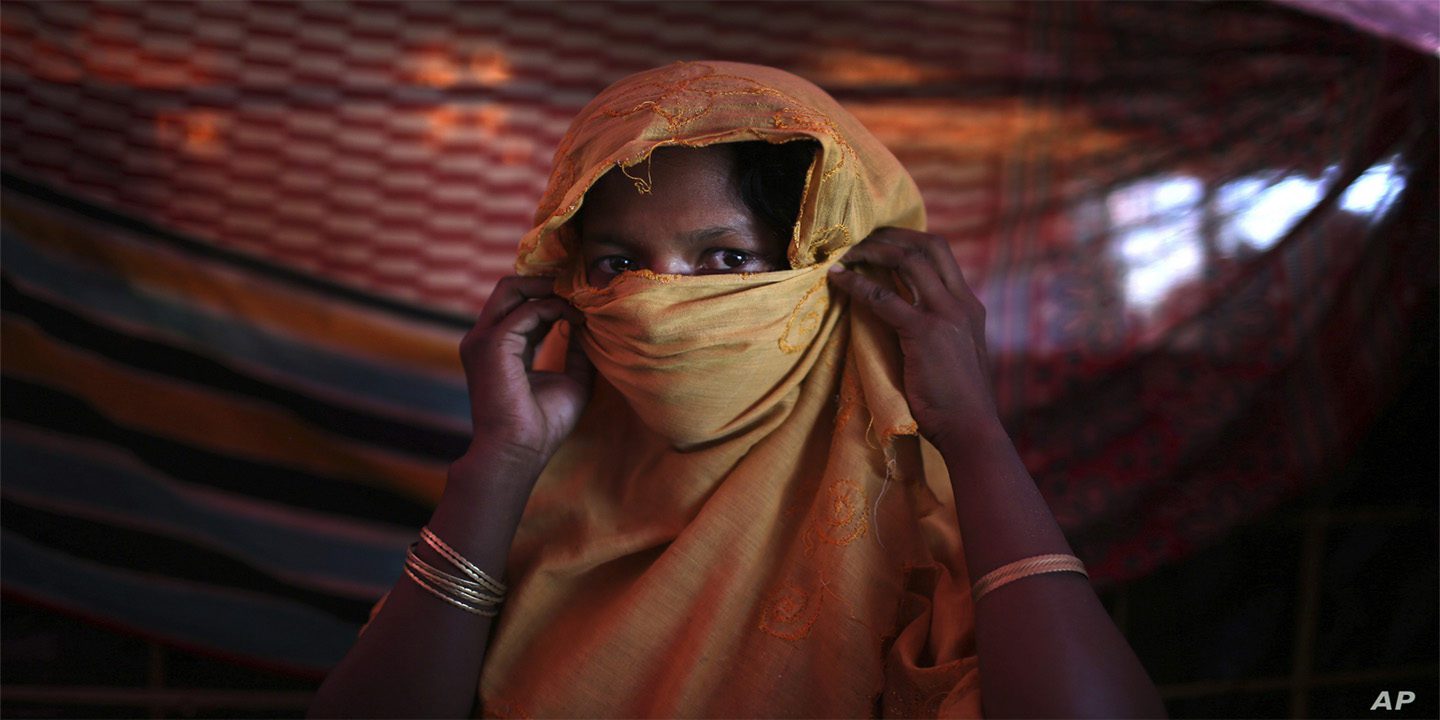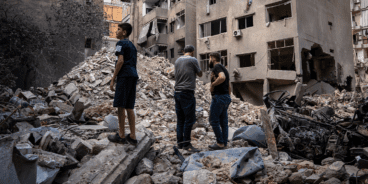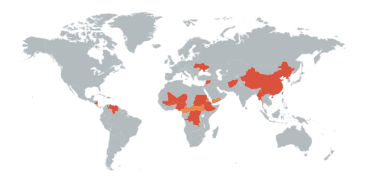

Atrocity Alert No. 169: Education Under Attack, Cameroon and Myanmar (Burma)
Atrocity Alert is a weekly publication by the Global Centre for the Responsibility to Protect highlighting situations where populations are at risk of, or are enduring, mass atrocity crimes.
Millions of children denied an education due to conflict and atrocities
From Syria and Yemen to the Democratic Republic of the Congo, attacks on educational facilities and personnel have become pervasive in many conflicts around the world. The UN verified that there were 742 attacks on schools globally during 2018. According to UNICEF – the UN Children’s Fund – 192 of those attacks occurred in Afghanistan, and more than a quarter took place in Central and West Africa.
Last week UNICEF released a new report on “Education under threat in West and Central Africa,” noting that the number of schools forced to close “due to rising insecurity in conflict-affected areas” more than tripled between the end of 2017 and June 2019. The report focused on eight countries (Burkina Faso, Cameroon, Central African Republic, Chad, Democratic Republic of the Congo, Mali, Niger and Nigeria) and documents that 9,272 schools have closed in the region due to violence and insecurity, denying more than 1.91 million children of access to an education.
Rising violence between ethnic militias and armed Islamist groups in the Mopti region of Mali and in neighboring areas of Burkina Faso have caused thousands of schools to close over the last year, while fighting amongst armed groups in Central African Republic has led to a 21 percent increase in attacks on schools since 2017. UNICEF also notes that children who are out of school are at higher risk of recruitment by armed groups and are especially vulnerable to gender-based violence.
As we approach the 30th anniversary of the adoption of the Convention on the Rights of the Child, all UN member states should sign the Safe Schools Declaration and work to ensure that schools, teachers and children are consistently protected. All state forces and non-state armed groups who target schools must be held accountable for their actions in keeping with international law.
Violence and ‘lockdowns’ in Cameroon’s north-west
Violence has flared in the Anglophone north-west region of Cameroon following a military court’s decision to sentence Sisiku Ayuk Tabe, the leader of the “Ambazonia Governing Council,” and nine of his followers to life imprisonment on charges of terrorism and secession. Since 20 August armed separatists have responded by attacking villages and towns across the Anglophone region. According to the government, fighting over the weekend resulted in at least 40 people being killed in the towns of Ndop, Bafut, Kumbo, Bamenda, Mamfe and Kumba. Tens of thousands of people have been displaced.
Various factions of the separatist movement also announced “lockdowns” for 26 August, 2 September and 11 September. Aimed at disrupting normal life, the lockdowns have also resulted in the forced closure of educational facilities. According to UNICEF, between the end of 2017 and June 2019, 4,437 schools closed in the two Anglophone regions of Cameroon resulting in more than 609,000 children being denied an education.
Earlier this year Sisiku Ayuk Tabe indicated his willingness to participate in political negotiations with the government. The spokesman for Cameroon’s main opposition party, the Social Democratic Front, Denis Nkenlemo, asserted that the life sentence given to Ayuk Tabe was “an act of provocation which once more proves that the government isn’t ready for dialogue.”
Political conflict over cultural rights and identity has deteriorated in Cameroon’s Anglophone regions since 2016 when English-speaking lawyers, students and teachers began protesting against their cultural marginalization by the Francophone-dominated government. Violent repression by the security forces resulted in arbitrary arrests, sexual violence and the killing of civilians in the north-west and south-west.
The crisis deepened after October 2017 when Anglophone separatists symbolically proclaimed independence, declaring a new state of “Ambazonia.” Since then there has been mounting evidence of the security forces perpetrating widespread extrajudicial killings while armed separatists have also perpetrated abuses, including killing civilians, kidnappings and attacking schools and teachers who do not support their cause.
Anglophone separatists and the government of Cameroon should work towards a negotiated solution to the crisis in the north-west and south-west regions, including through engaging with the mediation process proposed by Switzerland. The African Union and Economic Community of Central African States should actively prevent any further deterioration of the armed conflict. The human rights of all civilians in Cameroon must be equally protected, regardless of language, cultural identity or political affiliation.
New UN report says sexual violence was central to Rohingya genocide
Last Thursday, 22 August, the UN Human Rights Council-mandated Independent International Fact-Finding Mission on Myanmar (FFM) released a report on sexual and gender-based violence. According to the FFM, Myanmar’s military – the Tatmadaw – utilized sexual and gender-based violence to terrorize and punish ethnic Rohingya during so-called “clearance operations” conducted in Rakhine State in 2017. The new report asserts that “the sexual violence perpetrated against Rohingya women and girls in Rakhine State on and after 25 August 2017 was an indicator of the Tatmadaw’s genocidal intent to destroy the Rohingya people in whole or in part.”
The FFM found that the government of Myanmar has consistently failed to prevent or punish sexual violence perpetrated against Rohingya civilians since 2012, and that previous “waves of gross violations” as well as “anti-Rohingya laws and policies, laid the groundwork for the Tatmadaw to act with total impunity in perpetrating sexual and gender-based violence” during the 2017 military operations. The FFM concluded that the government “bears State responsibility under the Genocide Convention for its failure to investigate and punish acts of genocide and for its failure to enact necessary legislation to give effect to the Convention.”
Last Sunday, 25 August, marked two years since Myanmar’s security forces initiated their genocidal “clearance operations,” resulting in tens of thousands of deaths and the exodus of more than 745,000 Rohingya refugees to Bangladesh. The international community should act now to hold the perpetrators accountable and prevent further atrocities, including by taking Myanmar to the International Court of Justice for breaching its obligations under the Genocide Convention.
Read Next

Related Publications

Atrocity Alert No. 414: Lebanon, Ethiopia and the UN Human Rights Council

Atrocity Alert No. 410: Sudan, Myanmar (Burma) and Nigeria
